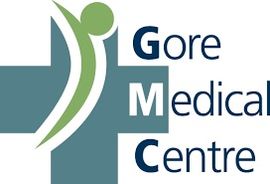Southland > GPs / Accident & Urgent Medical Care > WellSouth Primary Health Network >
Gore Medical Centre
General Practice (GP) Service
Today
8:30 AM to 5:00 PM.
Description
Gore Medical Centre
Our experienced team of doctors, nurses and administrative staff is committed to providing the best primary health care we can, to you and your entire family. Our doctors take a whole-life approach to caring for you and your family. We look at how factors in your life affect your health and wellbeing and care for people of all ages including newborns, children, adolescents and seniors. The Gore Medical Centre has an “acute Doctor” on duty which means if you have an urgent medical issue you will be seen on the day.
Staff
Our team is made up of GPs (see details below under “General Practitioners”) and:
Management:
Susan Jones - Practice Manager
Christina McRae - Finance Officer
Nursing staff:
Deborah Aynsley-Hunt, Hannah Mackay, Kerry Harrington, Keri McClelland, Kath Simmers, Shona Davie, Kaila Grant, Zara Weir, Kendall Witham, Janelle Larsen, Jo Michaels, Pania Lee and Trudie Pope.
Health Care Assistants:
Cristelle Blackler, Haley Horrell and Saffron Johnstone.
Clinical Support team:
Glenys Edwards, Margaret Macgregor, Dawn Wyllie, Cara Stephen, Fiona McLennan and Tracey Winkel.
Doctors
-
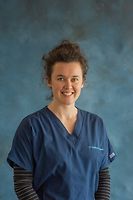
Dr Rebekah Goodwin
General Practitioner
-
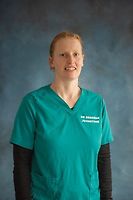
Dr Deborah Johnstone
General Practitioner - Vocationally registered
-
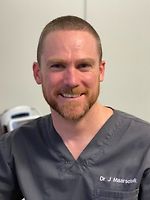
Dr Jeremy Maarschalk
General Practitioner - Vocationally registered
-

Dr Elaine Munro
General Practitioner
-

Dr Deborah Phillips
General Practitioner
-

Dr Rachel Trevathan
General Practitioner - Vocationally registered
-

Dr Andrew Ure
General Practitioner - Vocationally registered
-
Dr Glenys Weir
General Practitioner - Vocationally registered
-
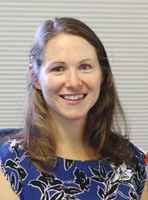
Dr Debra Wilson
General Practitioner - Vocationally registered
Enrolling new patients
No
This practice is not currently taking new patients for enrolment
However, you are welcome to go onto our waiting list. The list is regulary reviewed.
Fees
Enrolled Patient Fees
| Age Range | Without CSC | With CSC |
|---|---|---|
| Under 6 years | Free | Free |
| 6 to 13 years | Free | Free |
| 14 to 17 years | $31.00 | $13.00 |
| 18 to 24 years | $52.00 | $19.50 |
| 25 to 44 years | $54.50 | $19.50 |
| 45 to 64 years | $54.50 | $19.50 |
| 65+ years | $54.50 | $19.50 |
| Repeat prescriptions* (48 hrs notice) | $26.50 | |
| Urgent prescriptions (on the day) | $33.00 | |
| Prescriptions 0-13yrs | No charge | |
| ACC surcharge | $28.00 | |
| Nurses fees | ||
| Enrolled CSC/non CSC | ||
| 0-13 Years | No charge | |
| 14 - 17 Years | $13.00 / $20.00 | |
| Adult | $19.50 / $35.50 | |
| Enrolled | ||
| Smear Test | $37.00 | |
| ECG | $29.00 | |
| Driving medical | $104.50 | |
| Triage fees | ||
| Enrolled CSC/Non CSC | ||
| Triage consult | $18.00/$18.00 | |
| Triage script (incl consult) | $18.00/$32.50 | |
| Triage off work certificate | $18.00/$26.50 | |
*Repeat prescriptions need to be ordered well in advance. Please allow at least 48 hours for it to be ready, longer over weekends and public holidays. If you require an urgent repeat prescription (on the day), there is an extra surcharge for this.
Childhood schedule immunisation – no charge.
Medical certificates (eg driving, diving) are not part of the PHO funding and incur a full non PHO fee.
Minor surgery fees – please discuss with your doctor.
Home visits by arrangement only.
Other extra examinations may incur an extra fee. Please ask at reception.
Fees apply for casual and visitor consultations.
Payment of fees is expected at the time of your consultation.
Fees may change independently of this website.
Hours
8:30 AM to 5:00 PM.
| Mon – Fri | 8:30 AM – 5:00 PM |
|---|
After hours: We partner with Ka Ora Telecare to provide same day virtual GP appointments for enrolled patients, as an extension of our regular medical centre team.
We share the after hours roster with Gore Health, including on public holidays. Please ring our practice number 208-9222. If Gore Medical is on duty on a weekend or public holiday, our after hours clinic times are held from 10.00-11.00am and 5.00-6.00pm. Our phone will be answered by Gore Medical staff 30 minutes prior to a clinic time. Please ring for an appointment.
Ka Ora Telecare is available weekdays from 5.00pm to 8.30am and 24/7 weekends/public holidays.
Click here to find out more and to register/book an appointment or call Ka Ora on 0800 252 672.
Public Holidays: Closed Good Friday (18 Apr), Easter Sunday (20 Apr), Easter Monday (21 Apr), Southland Anniversary (22 Apr), ANZAC Day (25 Apr), King's Birthday (2 Jun), Matariki (20 Jun), Labour Day (27 Oct), Waitangi Day (6 Feb).
Languages Spoken
English
Services Provided
Our GP practice has team members who work alongside your doctor and nurses to provide you with a range of mental wellbeing supports and tools. These team members may include Health Improvement Practitioners (HIPs), Health Coaches and Support Workers. View the following link for more information about wellbeing support in general practice and the national Access & Choice programme.
Our GP practice has team members who work alongside your doctor and nurses to provide you with a range of mental wellbeing supports and tools. These team members may include Health Improvement Practitioners (HIPs), Health Coaches and Support Workers. View the following link for more information about wellbeing support in general practice and the national Access & Choice programme.
Our GP practice has team members who work alongside your doctor and nurses to provide you with a range of mental wellbeing supports and tools. These team members may include Health Improvement Practitioners (HIPs), Health Coaches and Support Workers.
View the following link for more information about wellbeing support in general practice and the national Access & Choice programme.
Your GP's surgery is far more than a place to go when you are feeling unwell and needing a quick cure. The doctor who sees you has gone through an extensive medical training to equip her or him to help children and adults of all ages with a range of physical and emotional difficulties. GPs are at the centre of the healthcare hub and will be aware of services and expertise that are available locally and further-a-field. GPs are also aware of the link that stress and unhappy life events have on physical health so know when to suggest a talking therapy rather than medication.
Your GP's surgery is far more than a place to go when you are feeling unwell and needing a quick cure. The doctor who sees you has gone through an extensive medical training to equip her or him to help children and adults of all ages with a range of physical and emotional difficulties. GPs are at the centre of the healthcare hub and will be aware of services and expertise that are available locally and further-a-field. GPs are also aware of the link that stress and unhappy life events have on physical health so know when to suggest a talking therapy rather than medication.
Your GP's surgery is far more than a place to go when you are feeling unwell and needing a quick cure. The doctor who sees you has gone through an extensive medical training to equip her or him to help children and adults of all ages with a range of physical and emotional difficulties. GPs are at the centre of the healthcare hub and will be aware of services and expertise that are available locally and further-a-field. GPs are also aware of the link that stress and unhappy life events have on physical health so know when to suggest a talking therapy rather than medication.
Health screening tests check for health conditions or early warning signs of disease.
Health screening tests check for health conditions or early warning signs of disease.
- Cervical screening
Health screening tests check for health conditions or early warning signs of disease.
Primary care practices offer a range of services and are able to deal with most minor accident care. If they are not able to deal with an injury they will refer on to the appropriate service.
Primary care practices offer a range of services and are able to deal with most minor accident care. If they are not able to deal with an injury they will refer on to the appropriate service.
Primary care practices offer a range of services and are able to deal with most minor accident care. If they are not able to deal with an injury they will refer on to the appropriate service.
Minor surgery is commonly provided in primary care practices, providing fast, competent removal and biopsies of skin lesions. Other services include cosmetic work such as removal of benign moles and skin tags. Ingrown toenail surgery is also commonly provided. These conditions do not need to be referred to a hospital, perhaps saving you a long wait or a cancelled appointment when a more serious case takes priority.
Minor surgery is commonly provided in primary care practices, providing fast, competent removal and biopsies of skin lesions. Other services include cosmetic work such as removal of benign moles and skin tags. Ingrown toenail surgery is also commonly provided. These conditions do not need to be referred to a hospital, perhaps saving you a long wait or a cancelled appointment when a more serious case takes priority.
Minor surgery is commonly provided in primary care practices, providing fast, competent removal and biopsies of skin lesions. Other services include cosmetic work such as removal of benign moles and skin tags. Ingrown toenail surgery is also commonly provided.
These conditions do not need to be referred to a hospital, perhaps saving you a long wait or a cancelled appointment when a more serious case takes priority.
All women and people with a cervix aged 25 – 69 who have ever had intimate skin-to-skin contact or been sexually active should have regular cervical screening. This includes women who have been immunised against HPV. Together, regular screening and HPV immunisation provide the best protection against cervical cancer. There are now more options for how you have cervical screening done: a simple vaginal swab test for HPV, either done yourself or with help from a healthcare professional a cervical sample taken by a healthcare professional (used to be known as a smear test). Talk with your healthcare provider to decide which option is best for you. If HPV is found, you may need to have a follow-up test or be referred directly for colposcopy. If you’ve not yet had HPV testing, you should be screened 3 years after your last test (or 1 year if immune deficient). Once you have had an HPV test, and providing HPV is not found, your next screening will be in 5 years (or 3 years if immune deficient). For more information: Cervical screening | Time to Screen - National Screening Unit
All women and people with a cervix aged 25 – 69 who have ever had intimate skin-to-skin contact or been sexually active should have regular cervical screening. This includes women who have been immunised against HPV. Together, regular screening and HPV immunisation provide the best protection against cervical cancer. There are now more options for how you have cervical screening done: a simple vaginal swab test for HPV, either done yourself or with help from a healthcare professional a cervical sample taken by a healthcare professional (used to be known as a smear test). Talk with your healthcare provider to decide which option is best for you. If HPV is found, you may need to have a follow-up test or be referred directly for colposcopy. If you’ve not yet had HPV testing, you should be screened 3 years after your last test (or 1 year if immune deficient). Once you have had an HPV test, and providing HPV is not found, your next screening will be in 5 years (or 3 years if immune deficient). For more information: Cervical screening | Time to Screen - National Screening Unit
All women and people with a cervix aged 25 – 69 who have ever had intimate skin-to-skin contact or been sexually active should have regular cervical screening. This includes women who have been immunised against HPV. Together, regular screening and HPV immunisation provide the best protection against cervical cancer.
There are now more options for how you have cervical screening done:
- a simple vaginal swab test for HPV, either done yourself or with help from a healthcare professional
- a cervical sample taken by a healthcare professional (used to be known as a smear test).
Talk with your healthcare provider to decide which option is best for you.
If HPV is found, you may need to have a follow-up test or be referred directly for colposcopy.
If you’ve not yet had HPV testing, you should be screened 3 years after your last test (or 1 year if immune deficient). Once you have had an HPV test, and providing HPV is not found, your next screening will be in 5 years (or 3 years if immune deficient).
For more information: Cervical screening | Time to Screen - National Screening Unit
A patient portal is a secure online tool provided by GP practices that can allow convenient access to your health information as well as interaction with the practice e.g. booking appointments and requesting repeat prescriptions.
A patient portal is a secure online tool provided by GP practices that can allow convenient access to your health information as well as interaction with the practice e.g. booking appointments and requesting repeat prescriptions.
A patient portal is a secure online tool provided by GP practices that can allow convenient access to your health information as well as interaction with the practice e.g. booking appointments and requesting repeat prescriptions.
Applicants for New Zealand visas may be required to provide medical and chest x-ray certificates to demonstrate an acceptable standard of health. Immigration New Zealand uses eMedical, an online platform for processing immigration health examinations. The examining doctor records the applicant’s health examination results in eMedical then electronically submits them to Immigration New Zealand where they are associated with the applicant’s visa application once it is submitted. Only doctors who have been approved by Immigration NZ are able to conduct the medical examinations. The immigration officer who assesses the applicant’s visa application will determine whether they have an acceptable standard of health. Visa applicants requiring an immigration medical examination must make an appointment with an eMedical enabled clinic on Immigration New Zealand’s approved list.
Applicants for New Zealand visas may be required to provide medical and chest x-ray certificates to demonstrate an acceptable standard of health. Immigration New Zealand uses eMedical, an online platform for processing immigration health examinations. The examining doctor records the applicant’s health examination results in eMedical then electronically submits them to Immigration New Zealand where they are associated with the applicant’s visa application once it is submitted. Only doctors who have been approved by Immigration NZ are able to conduct the medical examinations. The immigration officer who assesses the applicant’s visa application will determine whether they have an acceptable standard of health. Visa applicants requiring an immigration medical examination must make an appointment with an eMedical enabled clinic on Immigration New Zealand’s approved list.
Applicants for New Zealand visas may be required to provide medical and chest x-ray certificates to demonstrate an acceptable standard of health. Immigration New Zealand uses eMedical, an online platform for processing immigration health examinations. The examining doctor records the applicant’s health examination results in eMedical then electronically submits them to Immigration New Zealand where they are associated with the applicant’s visa application once it is submitted. Only doctors who have been approved by Immigration NZ are able to conduct the medical examinations. The immigration officer who assesses the applicant’s visa application will determine whether they have an acceptable standard of health. Visa applicants requiring an immigration medical examination must make an appointment with an eMedical enabled clinic on Immigration New Zealand’s approved list.
Disability Assistance
Wheelchair access
Website
Contact Details
12 Eccles Street, Gore
Southland
8:30 AM to 5:00 PM.
-
Phone
(03) 208 9222
Healthlink EDI
goremedi
Email
Website
12 Eccles Street
Gore
Southland 9710
Street Address
12 Eccles Street
Gore
Southland 9710
Postal Address
PO Box 39
Gore 9740
Was this page helpful?
This page was last updated at 9:58AM on April 9, 2025. This information is reviewed and edited by Gore Medical Centre.

